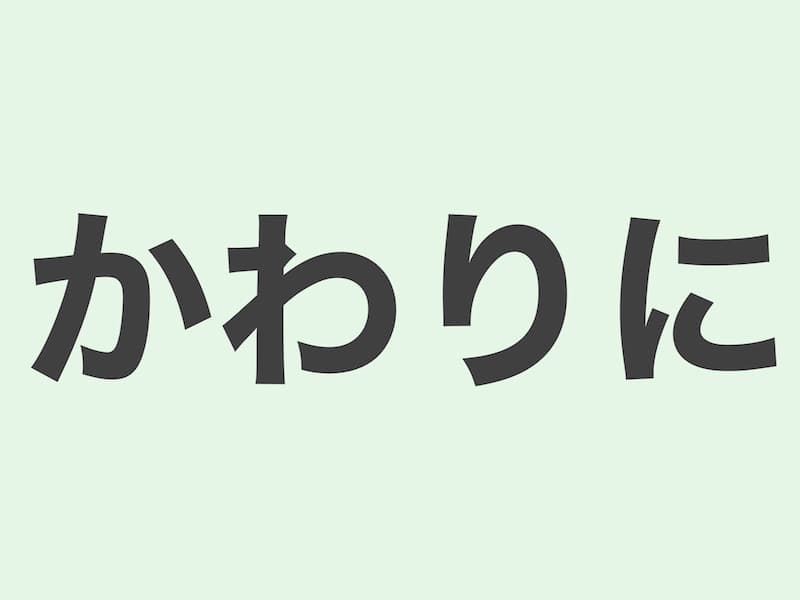説明 (Explanation)
文法(Grammar):普通形+かわりに・名詞の+かわりに・(な形容詞)な+かわりに
=名詞+にかわって(かわり)・名詞+にかわって・名詞+にかわり
意味 (Meaning):「代わりに」は、あるものや状況を別のものや状況に変えたり、ある行動や役割を他の行動や役割で置き換える際に使われる表現です。
英語(English):The phrase “かわりに” (kawari ni) in Japanese can be translated to “instead” or “in exchange for” in English. It is often used to indicate a substitution or replacement for something else.
JLPT Textbook Recommendations
例文 (Examples)
- 彼の代わりにプレゼンテーションを行うことになりました。
- 今日は雨が降っていますから、ピクニックの代わりに映画を見ることにしました。
- 中島さんの代わりに会議に出席します。
- アレルギーなので、牛乳の代わりにオーツミルクを使います。
- 健康のために、電車の代わりに自転車で会社へ行きます。
- 友達がコンサートに行けないので、私がかわりにいきました。
- 忙しいので、かわりに夫が買い物に行ってきてくれました。
ひらなが (Hiragana)
- かれのかわりにプレゼンテーションをおこなうことになりました。
- きょうはあめがふっていますから、ピクニックのかわりにえいがをみることにしました。
- なかじまさんのかわりにかいぎにしゅっせきします。
- アレルギーなので、ぎゅうにゅうのかわりにオーツミルクをつかいます。
- けんこうのために、でんしゃのかわりにじてんしゃでかいしゃへいきます。
- ともだちがコンサートにいけないので、わたしがかわりにいきました。
- いそがしいので、かわりにおっとがかいものにいってきてくれました。
英語翻訳 (English Translation)
- I will be giving the presentation in his place.
- Since it’s raining today, we decided to watch a movie instead of having a picnic.
- I will attend the meeting instead of Mr. Nakajima.
- Because of my allergy, I use oat milk instead of cow’s milk.
- For my health, I go to the office by bicycle instead of by train.
- Since I’m busy, my husband went shopping in my place.
- My friend couldn’t go to the concert, so I went in their place.





コメント